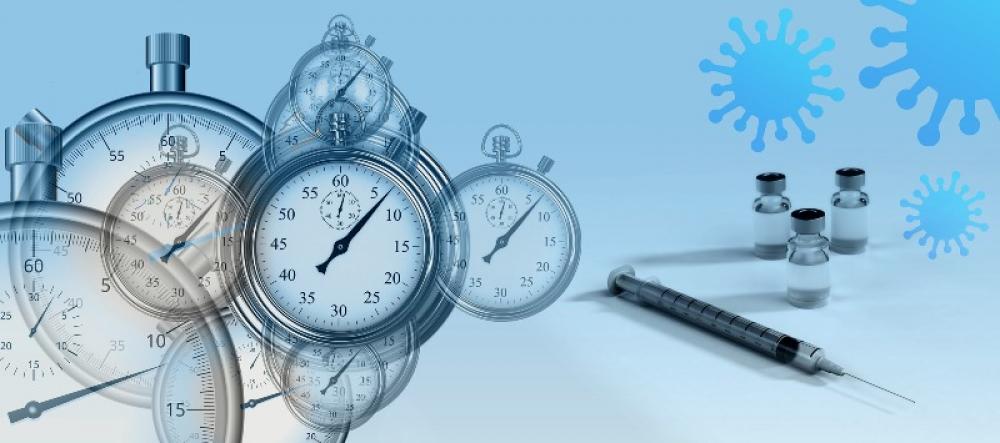Just Earth News | @justearthnews | 20 Jul 2020

London: Setting a big mark of progress, a coronavirus vaccine developed by the University of Oxford has produced a strong immune response and appeared to be safe, a new study revealed on Monday.
The results of Phase I/II trial of the vaccine, developed by Oxford University’s Jenner Institute and Oxford Vaccine Group, were published on Monday in the scientific journal, The Lancet, and they indicated no early safety concerns and induces strong immune responses in both parts of the immune system.
Oxford’s Covid-19 vaccine produces a good immune response, reveals new study.
— University of Oxford (@UniofOxford) July 20, 2020
Teams at @VaccineTrials and @OxfordVacGroup have found there were no safety concerns, and the vaccine stimulated strong immune responses: https://t.co/krqRzXMh7B pic.twitter.com/Svd3MhCXWZ
The vaccine provoked a T cell response within 14 days of vaccination (white blood cells that can attack cells infected with the SARS-CoV-2 virus), and an antibody response within 28 days (antibodies are able to neutralise the virus so that it cannot infect cells when initially contracted), the study revealed.
During the study participants who received the vaccine had detectable neutralising antibodies, which have been suggested by researchers as important for protection.
The responses were strongest after a booster dose, with 100% of participants' blood having neutralising activity against the coronavirus.
The next step in studying the vaccine is to confirm that it can effectively protect against SARS-CoV-2 infection.
.jpg)
“The Phase I/II data for our coronavirus vaccine shows that the vaccine did not lead to any unexpected reactions and had a similar safety profile to previous vaccines of this type. The immune responses observed following vaccination are in line with what previous animal studies have shown are associated with protection against the SARS-CoV-2 virus, although we must continue with our rigorous clinical trial programme to confirm this in humans,” says Professor Andrew Pollard, Chief investigator of the Oxford Vaccine Trial at Oxford University and co-author of the study.
“We saw the strongest immune response in the 10 participants who received two doses of the vaccine, indicating that this might be a good strategy for vaccination,” Professor Pollard continues.
A UK Phase I/II trial began in April testing the Oxford coronavirus vaccine ChAdOx1 nCoV-19.
The team started working to develop the vaccine against the global threat, coronavirus, in January this year.
During the Phase I/II trial the vaccine has been evaluated in more than 1,000 healthy adult volunteers aged between 18 and 55 years in a randomised controlled trial.
A subset of these volunteers (10 people) received two doses of the vaccine. Between
April 23, 2020 and May 21, 2020, 1077 volunteers, received the vaccine ChAdOx1 nCoV-19 or a placebo MenACWY vaccine. There were no serious adverse health events related to ChAdOx1 nCoV-19.
The University of Oxford is working with the UK-based global biopharmaceutical company AstraZeneca for the further development, large-scale manufacture and potential distribution of the Covid-19 vaccine, with plans for clinical development and production of the Oxford vaccine progressing globally.
Pixabay